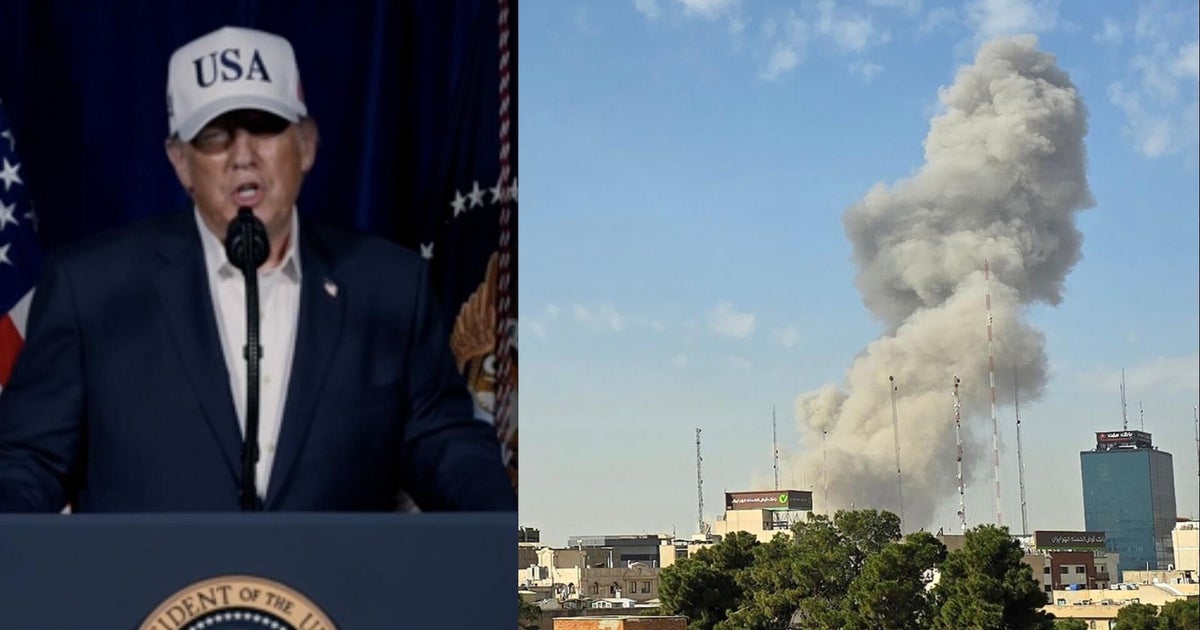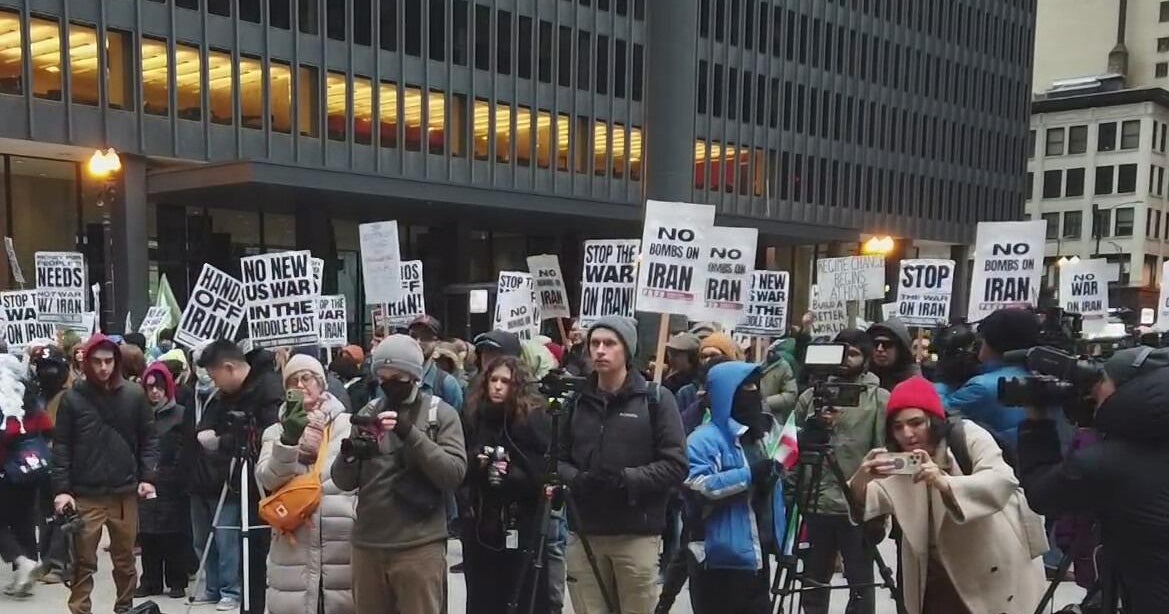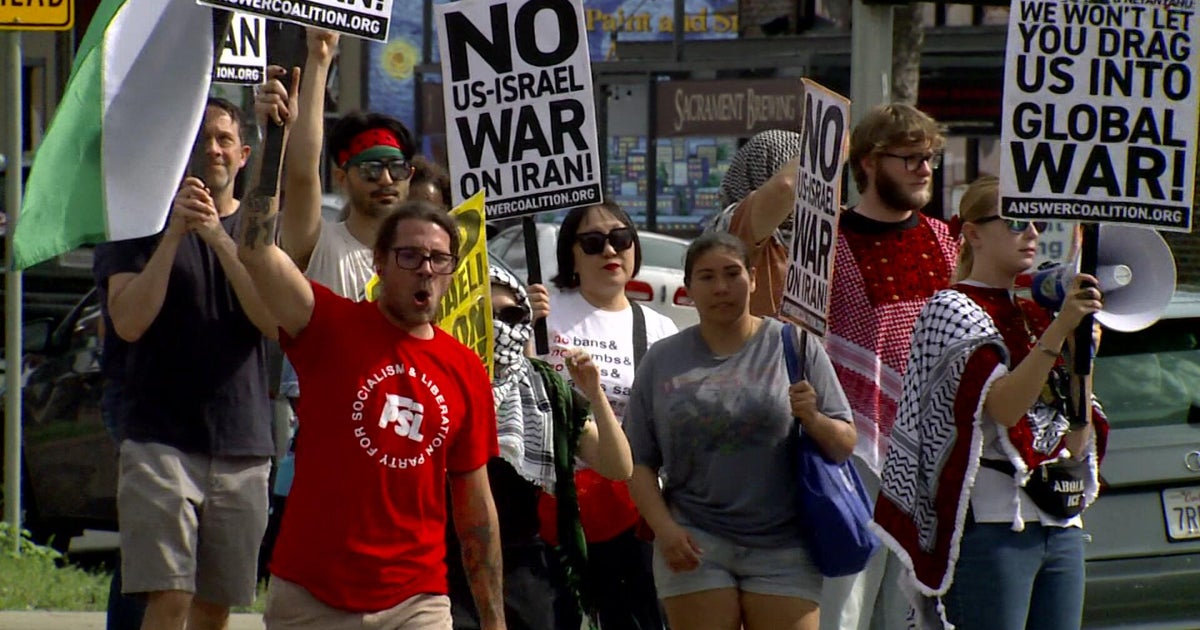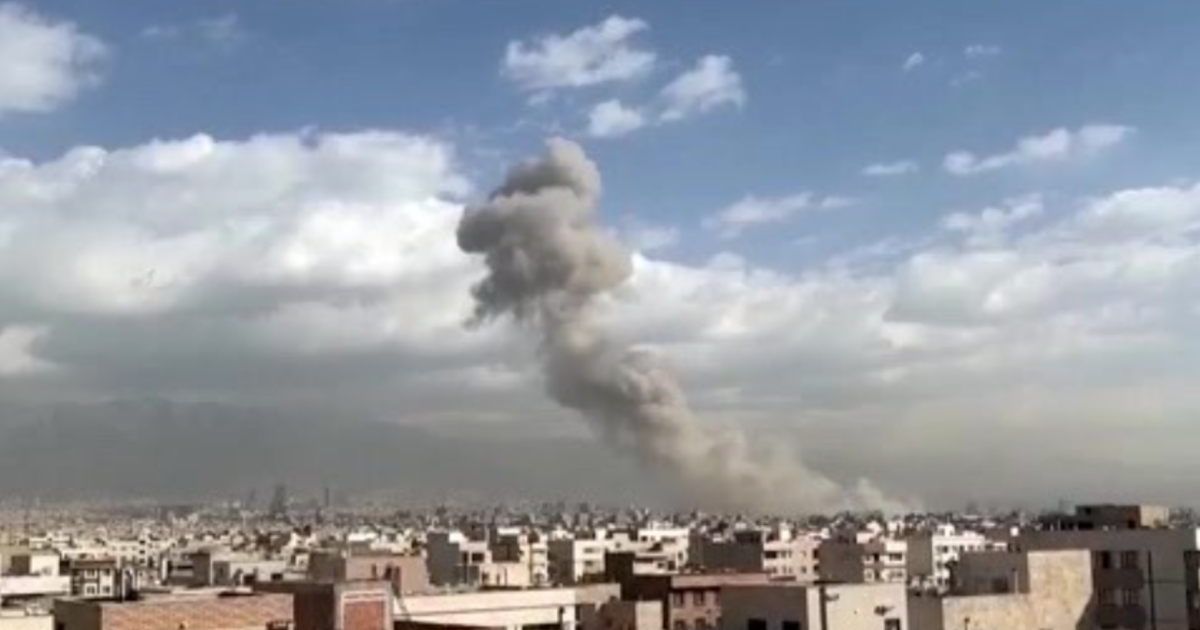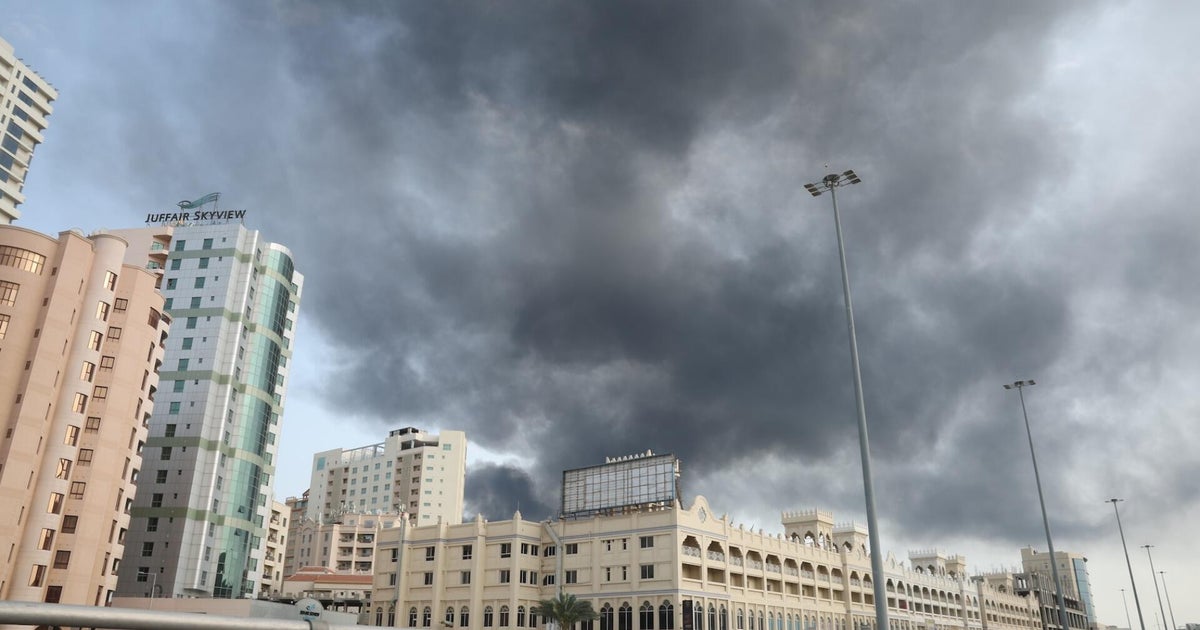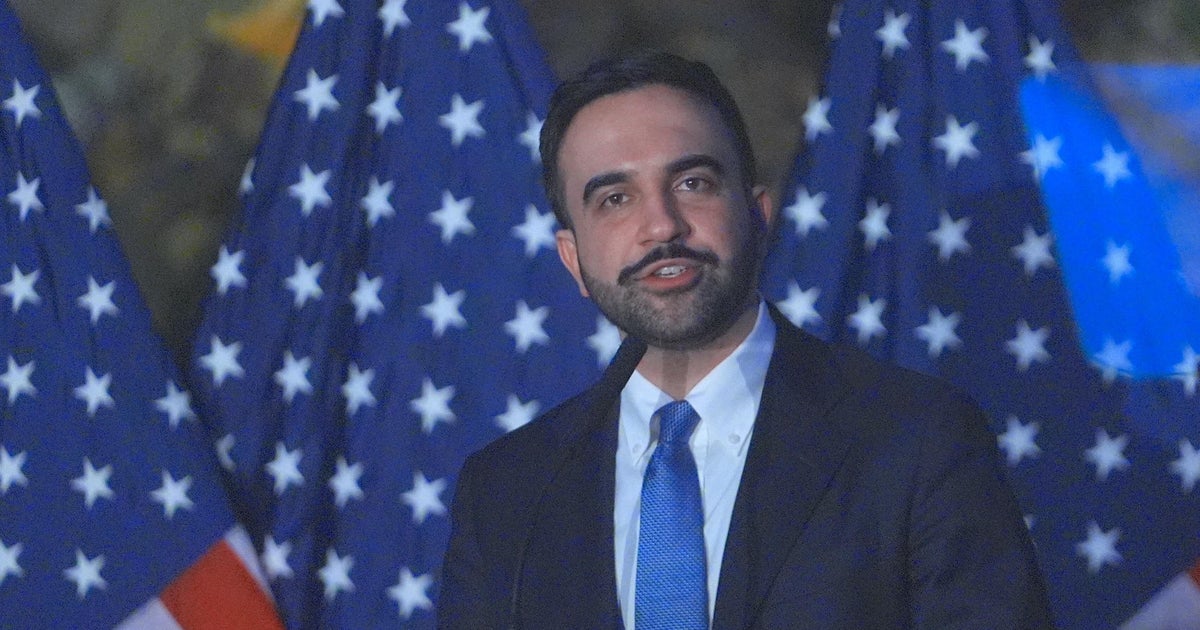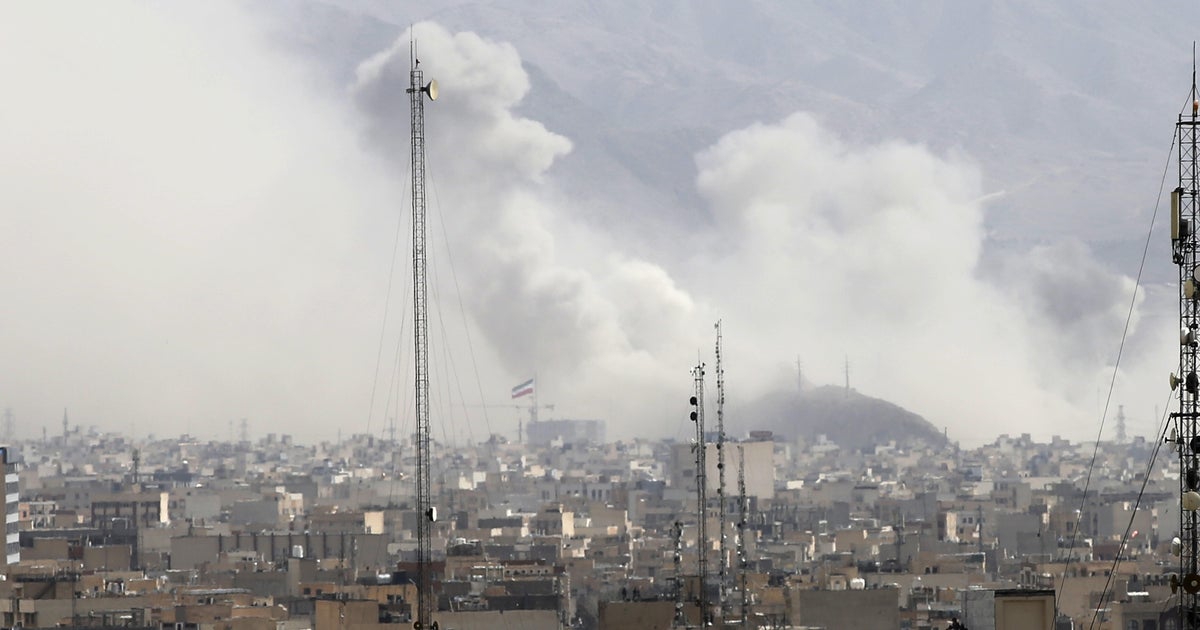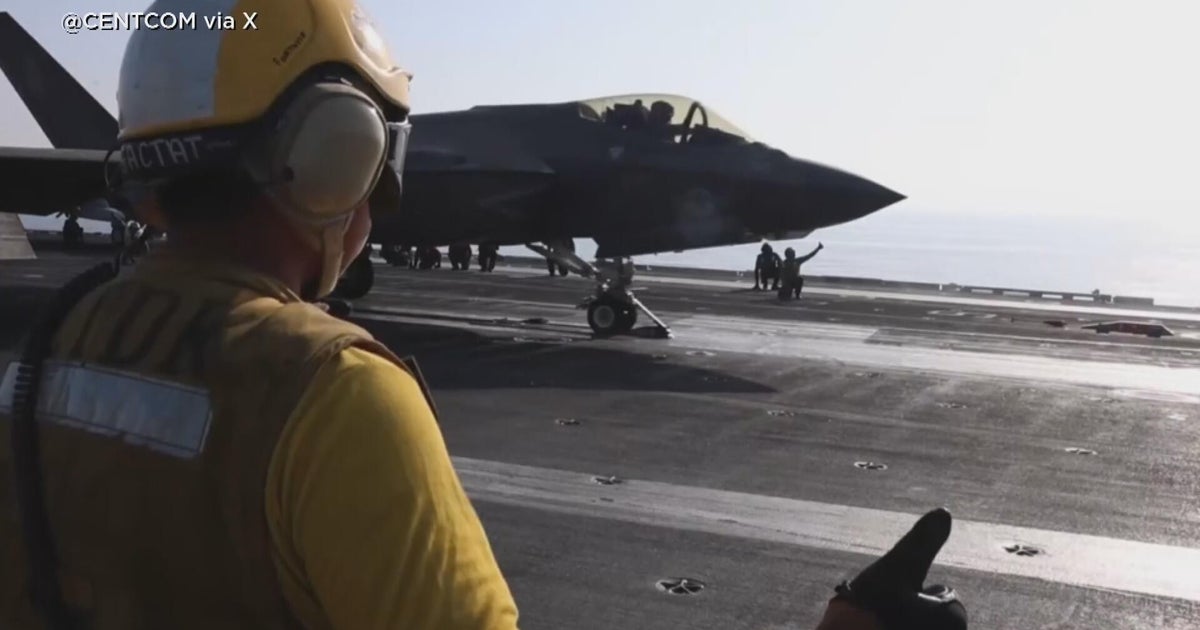Obama Will Seek Congressional Approval On Syria
WASHINGTON (AP) - President Barack Obama's administration insists that Syrian President Bashar Assad's government carried out a chemical weapons attack against his own people.
Obama has decided the U.S. should take military action, but will seek authorization from Congress for the use of force. It is uncertain when Congress will debate and vote on the authorization. Lawmakers are scheduled to return to Washington on Sept. 9.
The Obama administration, however, is having trouble getting other countries to support a limited attack.
Assad's government denies the allegations and insists the rebels are to blame for any chemical attack. Russia is among the countries lining up behind him.
A look at the latest developments and how it got to this point:
THE SYRIAN CONFLICT
Now in its third year, the civil war in a small country with a population of about 23 million is complicated and brutal. There are heavy civilian casualties on both sides.
The conflict has increasingly taken on sectarian tones as rebels, some of them Islamic extremists, fight government loyalists. It's essentially a regional proxy war increasingly fought along sectarian lines, pitting Sunni against Shiite Muslims, and threatening the stability of Syria's neighbors.
By mid-2011, a loose coalition of rebels and anti-government tribal groups had formed the Free Syrian Army whose goal was to topple Assad. As the violence increased, more people fled the country.
Rebels appeared to be gaining the upper hand and they occupied more and more territory. But over the past few months the military scored a string of victories and their offensives pushed many rebels back into the Damascus suburbs.
Assad's government increased its pressure on rebels as pro-democracy Arab Spring movements swept through the region last year.
The United Nations estimates that roughly 1.5 million people have fled, many into Lebanon.
THE WORLD'S RESPONSE TO SYRIA'S CIVIL WAR BEFORE THE ALLEGED CHEMICAL ATTACK
Even before the alleged chemical attacks, the Assad government was hit with an increasing number of penalties from European countries and the U.S.
While Assad gained increasing support and supplies from Russia and Iran, the escalating sanctions by the European Union and the United States put more pressure on people struggling with food and fuel shortages and inflation.
OBAMA'S RED LINE AND EARLIER RESPONSE
Last summer, Obama said that Assad's use of chemical weapons would cross a red line, suggesting greater U.S. intervention. Then in June, the White House said it had conclusive evidence that Assad used chemical weapons against rebel fighters, and Obama decided to respond by authorizing the arming of Syria's rebels.
The move promised to deepen U.S. involvement in the conflict and heightening U.S. tensions with Russia, a staunch ally of Assad.
It was a turning point for the U.S., which up to that point had avoided getting drawn into the conflict militarily.
A chief U.S. concern had been that U.S.-supplied weapons could fall into the hands of al-Qaida-linked militants fighting alongside the rebels.
THE TIPPING POINT
On Aug. 21, the Obama administration says, Assad's government unleashed a chemical attack outside Damascus. The government of Syria denies there were any chemical attacks.
Syrian officials insist that rebels carried out the attacks. There's disagreement within the international community over whether there were chemical weapons used. Estimates of the dead have varied depending on the source.
Activists and those who live in the area have said well over 1,000 people died in the attacks. Secretary of State John Kerry put the death count at 1,429, of which he said 426 were children. The nonpartisan humanitarian group Doctors Without Borders has put the death toll at 355 people.
The Syrian Observatory for Human Rights, one of the main groups monitoring casualties in Syria, said Saturday it has only been able to confirm 502 deaths, identifying victims by name.
THE OBAMA ADMINISTRATION'S ARGUMENT
Obama has decided the U.S. should take military action against Syria, and while he has the authority to act alone, he will seek authorization from Congress. Obama is considering a limited and narrow action in response to a chemical weapons attack that he says Syria's government carried out last week.
He made the comments after the U.S. released an intelligence assessment that found with "high confidence" that Assad's government carried out the chemical attack.
But Obama has not yet been able to show that Assad himself ordered the attacks or spelled out how punishing military strikes might defer future use of chemical weapons in the region.
COALITION OF THE NOT-SO WILLING
It's been hard for Obama to assemble an international coalition to confront Syria.
That's because burnout over long engagements in Iraq and Afghanistan, and the unpopularity of military adventures in Muslim countries, have wearied traditional Western allies.
Britain, a stalwart ally in the wars in Iraq and Afghanistan, won't play a direct role in any U.S. attack this time. British lawmakers abruptly refused to approve military action, despite a strong appeal by Prime Minister David Cameron to help the United States.
The only allied leader to openly express willingness to join a U.S. attack on Syria was French President Francois Hollande.
The German government also said it isn't considering joining military action against Syria.
A MATTER OF TIMING
Congress is set to reconvene on Sept. 9. Obama said the leaders of both parties have pledged to take up and debate his request for military authorization as soon as they return.
U.N. inspectors have returned from Syria, but officials say that a report on their findings could take a week or more.
CONGRESS, THE CONSTITUTION AND THE WAR POWERS ACT
The Constitution gives Congress the sole power to declare - and pay for - war, but Congress hasn't formally declared war since World War II.
Obama as commander in chief could retaliate against Syrian targets without approval from the American people or their representatives in Congress. He's done it before - two years ago in Libya. So have many other U.S. presidents.
The military conflicts in Korea, Vietnam, Panama, Iraq (twice), the Caribbean island of Grenada, Kosovo and Libya were undeclared, even though in most cases Congress did vote approval short of a war declaration - sometimes after the fact.
The Korean War was fought under the auspices of the United Nations. The Kosovo War was waged by the North Atlantic Treaty Organization.
Congress' constitutional power to declare war was refined and expanded by the 1973 War Powers Act, which requires a president to notify Congress within 48 hours of initiating military action and bars U.S. armed forces for fighting for more than a maximum of 90 days without congressional approval.
HOW IT PROBABLY WOULD WORK
Obama has ruled out putting troops on the ground in Syria, and because of Assad's extensive air defense systems.
Any order for a strike would come from Obama, delivered to Gen. Martin Dempsey, chairman of the Joint Chiefs of Staff, and Defense Secretary Chuck Hagel. U.S. commanders would communicate and coordinate with military officers from other nations involved in the fight, such as France, over secure lines.
Five U.S. Navy destroyers are in the eastern Mediterranean Sea waiting for the order to launch. They are armed with dozens of Tomahawk cruise missiles. The Navy also now has two aircraft carriers in the Arabian Sea that are loaded with fighter jets.
THE DIFFERENT U.S. RESPONSES TO HUMANITARIAN CRISES IN RWANDA, KOSOVO AND SYRIA
Obama and his supporters have cited humanitarian motivations in setting the stage for military strikes in Syria.
But the United States has a mixed record on responding to humanitarian crises. More than 500,000 people were killed in genocidal mass slaughter in 1994 in the East African state of Rwanda in a civil war between ethnic groups. The United States did not get involved militarily, although it later helped out in international efforts to relocate refugees.
Five years later, with President Bill Clinton still in the White House, it was a different story. As many as 10,000 ethnic Albanians were killed in Kosovo through the "ethnic cleansing" of Yugoslav leader Yugoslavia's Slobodan Milosevic. Clinton ordered air strikes that lasted 78 days.
Milosevic had the strong support of Russia, as Syria's Assad does today.
OBAMA'S CREDIBILITY
Obama has drawn several "red lines" that could put him in a box and make it difficult to compromise with opponents.
On Syria, he has said that Assad would cross one if he used chemical weapons in violation of international agreements that ban the use of them. And Syria's alleged use of chemical weapons tests the president's credibility on the world stage.
Obama drew another red line on Iran, saying it was unacceptable for that country to develop nuclear weapons.
Tehran has regularly warned the U.S. against possible military action against Syria, calling such a strike Iran's own "red line" even as a cruise-missile bearing U.S. naval fleet positions itself off Syria's coast. And Iranian President Hassan Rouhani said his country will press forward with efforts to ward off military action in Syria by the U.S. and its allies.
RELATED LINK:
Local Leaders Weigh In On Presidents Statement On Syria (8/31/13)
(Copyright 2013 The Associated Press. All rights reserved. This material may not be published, broadcast, rewritten or redistributed.)
